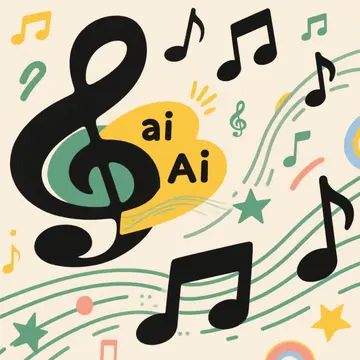As AI-generated music floods streaming platforms and social media, a pressing question emerges: Who owns a song created by algorithms? From viral AI Drake tracks to AI-composed jingles, the legal system struggles to answer this—leaving artists, tech companies, and lawmakers in a high-stakes standoff. Let’s dissect the battle over ownership, profits, and creativity.

Real-World Case Studies: Ownership Wars in AI Music
1. Ghostwriter’s “Heart on My Sleeve” vs. Universal Music Group
In 2023, a TikTok user named Ghostwriter released a song using AI-cloned vocals of Drake and The Weeknd. It garnered 15 million streams before Universal Music Group (UMG) issued takedowns, citing copyright infringement. The track exists in a legal gray area: Who owns the vocals—the AI user, the platform, or the original artists?
2. Grimes’ “Elf.Tech” Experiment
Musician Grimes launched a platform allowing fans to use her AI voice for tracks, with a 50% royalty split. While innovative, it raises questions: If a fan’s AI-generated song goes viral, who controls licensing deals—Grimes, the fan, or the AI developer?
3. Getty Images vs. Stability AI: A Precedent for Music?
Though focused on images, Getty’s lawsuit against Stability AI (for training models on copyrighted photos) could impact music. If AI tools like Google’s MusicLM are trained on copyrighted songs, are outputs derivative works—or entirely new?
The Legal Landscape: Who Holds the Rights?
Current laws were designed for human creators, leaving AI music in limbo:
United States
The U.S. Copyright Office states that works lacking “human authorship” (like AI-generated art) aren’t protected. However, if a human “significantly modifies” AI output, they may claim copyright.
European Union
The EU’s proposed AI Act demands transparency about training data sources but avoids ownership clarity. Courts may treat AI music as “computer-generated works,” granting rights to the human “arranger.”
Japan
Japan’s 2018 guidelines allow AI-generated content to be copyrighted if humans oversee the process—a stance favoring tech companies.
Key Legal Debates Shaping the Future
1. Training Data: Fair Use or Theft?
AI models like OpenAI’s Jukedeck are trained on millions of copyrighted songs. Artists argue this violates their rights; tech firms claim it’s “fair use” for innovation.
2. Defining the “Creator”
Is the owner:
The programmer who built the AI?
The user who input prompts?
The original artists whose work trained the AI?
Courts have yet to decide.
3. Profit Sharing
Platforms like Boomy distribute royalties to AI users, but labels like UMG demand compensation for AI using their artists’ styles.
Solutions on the Horizon: Can Law Catch Up to Tech?
Option 1: “AI as a Tool” Framework
Treat AI like Photoshop—users own outputs but must license training data. The UK’s 1988 Copyright Act already does this for computer-generated works.
Option 2: Mandatory Transparency
Force AI companies to disclose training data sources and share royalties with original artists. Adobe’s AI music tool, trained only on licensed tracks, sets a precedent.
Option 3: New Copyright Categories
Create labels like “AI-Assisted” or “AI-Generated” with tiered ownership rules.
FAQ: AI Music Ownership Explained
Q1: Can I copyright a song made with AI?
In the U.S., only if you prove “substantial human input” (e.g., editing melodies, lyrics). Pure AI outputs aren’t protected.
Q2: Is using AI to mimic an artist’s voice legal?
Not without permission. Drake’s label sued AI voice clone projects for violating publicity rights and copyright.
Q3: Do artists get paid if an AI copies their style?
Currently, no—unless laws change. Tennessee’s ELVIS Act (2024) aims to protect voices, but style remains unprotected.
Conclusion: Rewriting the Rules of Creativity
The AI music ownership dilemma exposes a fractured legal system racing to redefine art, labor, and profit in the algorithmic age. While courts debate, artists and tech pioneers are forging their own rules—from Grimes’ royalty splits to Adobe’s ethical AI models. One thing is clear: Until laws modernize, the question “Who owns AI music?” will only grow louder.

